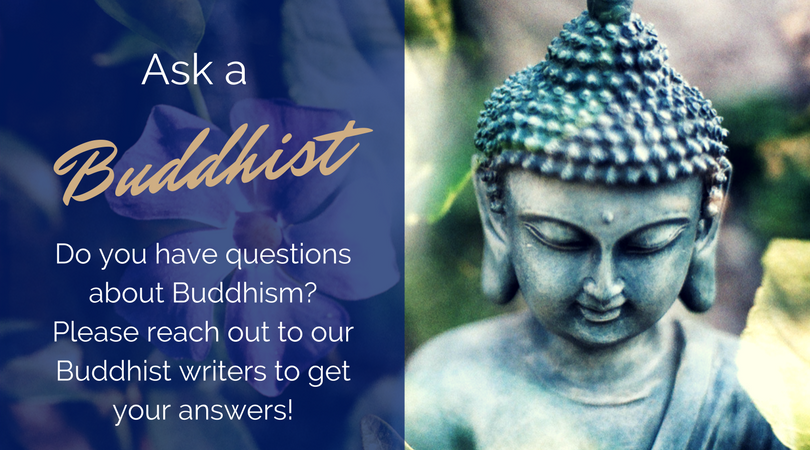Ask a Buddhist: Rebirth, Control, and Sexual Pleasure
What do you want to ask a Buddhist? Fill out the form below or submit your question online.
Who controls reincarnation? Do we have evidence of reincarnation? If I practice Buddhism I can’t crave sexual pleasure so does that mean I should divorce my wife? Who or what created samsara?
Buddhism shares many views with Abrahamic traditions—Judaism, Islam, and Christianity. An emphasis on loving your neighbors, doing unto others as you would have them do unto you, welcoming the stranger, and so forth reflect the universally admired values of love, compassion, and generosity, which are prominent in Buddhism.
One major difference comes when we talk about who or what created and controls the universe. This seems to be the underlying question here.
Cause and result
Jainism and Buddhism are two world religions that do not posit an omnipotent creator. Buddhism relies on the logic of cause and effect—the view that every conditioned or created thing that exists comes about through an immeasurable series of causes and conditions, far too complex to trace to a “beginning.”
For example, the tomato plant in your garden came from a seed, but that seed came from a previous tomato, which came from a previous tomato, etc. Each tomato is made from organic matter that was previously part of another plant or tree. Plus, every previous tomato plant in the lineage required the right conditions to have produced your present tomato. The seeds must have fallen into earth, for instance, and not concrete.
Each previous tomato plant had enough water and the proper temperature for it to grow and fruit. Each plant required the presence of pollinators and an absence of hungry, marauding chipmunks. These are just a very few strands in the network of causes and conditions that produced this one tomato.
In extremely subtle states of meditative concentration, the Buddha was able to see the process of cause and result playing out endlessly throughout all realms of existence and in the minds of every being. He described this law of cause and result as the basis of all known things.
And he could see no beginning whatsoever – the same way that the number line has no beginning or end, but continues infinitely in both directions. Thus, Buddhists hold that the continuity of every mindstream is beginningless and endless.
From this perspective, we can’t find a creator of samsara—the cycle of rebirth that we living beings experience under the influence of ignorance—or a creator of nirvana, the state of peaceful liberation from this cycle. Since there’s no creator, there is no controller either.
Does that mean everything occurs randomly? No. Everything arises from previous causes and the necessary supporting conditions. We call this dependent arising.
And rebirth?
So for Buddhists, rebirth is explained within the framework of dependent arising. Each being’s consciousness, unbroken and unbreakable, flows on continually as one moment of mind follows another. Each consciousness is propelled into taking one body after another, the type of which is determined by the types of thoughts and actions we’ve had in the past.
Virtuous actions lead to fortunate rebirth; non-virtuous actions lead to unfortunate rebirths. This is a very simple description of the extremely complex law of karma. This is similar to the Biblical idea that we reap what we sow.
As for evidence of rebirth, a number of people recall their previous lives. Some people’s memories are clear enough to be verifiable. Dr. Ian Stevenson and his successor, Dr. Jim Tucker, have studied this phenomenon under the auspices of the School of Medicine at the University of Virginia for over 50 years. Their findings are fascinating.
In addition, no one has ever disproved rebirth.
What about sex?
Not sure where you heard that Buddhists “can’t crave sexual pleasure.” That’s a very tall demand.
The Buddha didn’t give commandments about what his followers can or cannot do. He simply described the types of actions that bring happiness—short and long term—and the types that result in suffering. In other words, more cause and result.
The Buddha advised that people use their sexuality wisely and kindly so as not to harm self or others. That means being faithful to one’s partner and taking care not to spread sexually transmitted diseases. The fundamental tenets of Buddhism can be summarized in a short sentence: Benefit others as much as you can, and if that is not possible, at least do not harm them. This is wise advice to follow in all areas of our lives.
https://form.jotform.com/form/82645103139150






